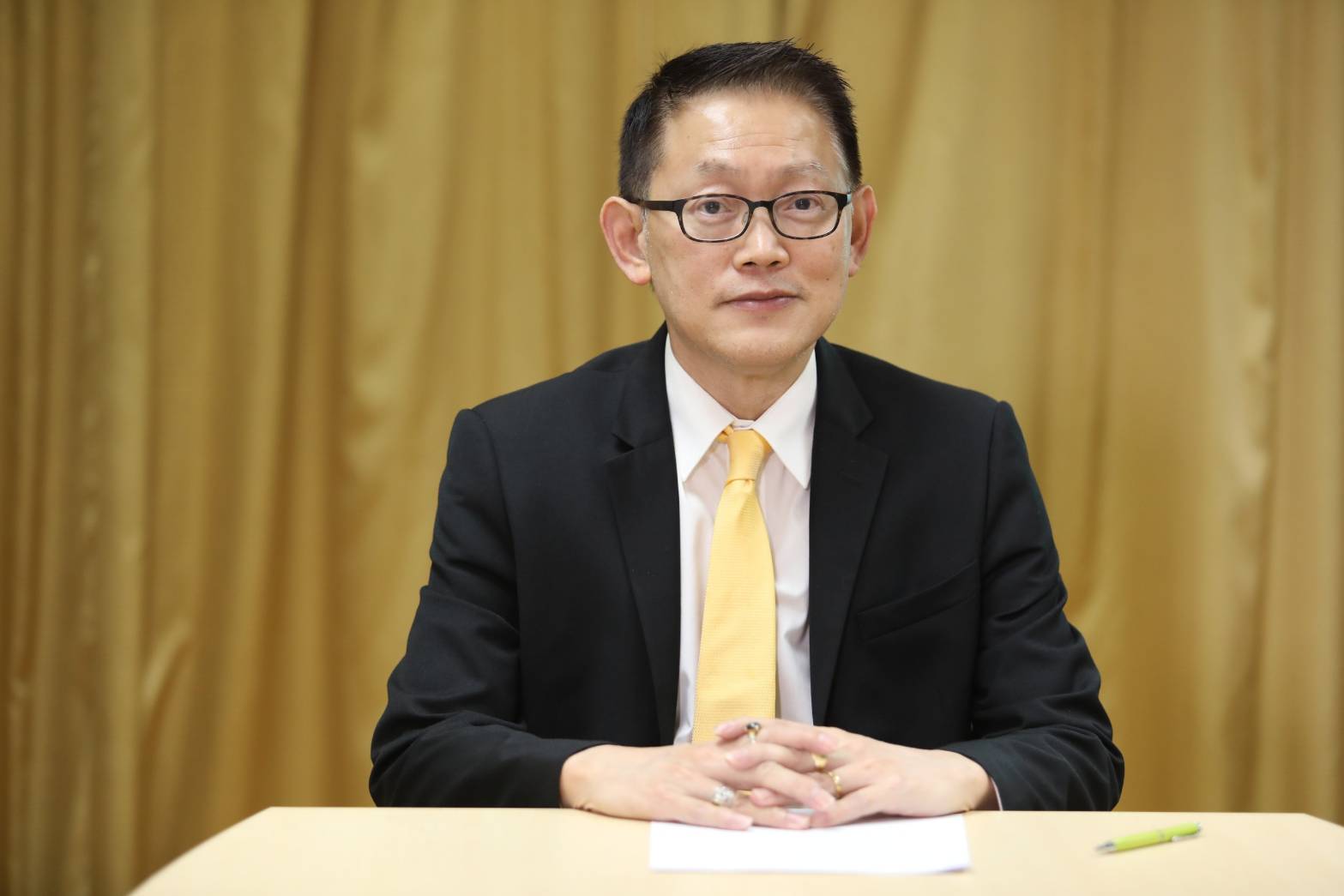
- Home
- About_NHSO
- Secretary-General
From 'Treats All Diseases' to 'Treatment Anywhere': The Transformation of Thailand's Universal Coverage Scheme

From 'Treats All Diseases' to 'Treatment Anywhere': The Transformation of Thailand's Universal Coverage Scheme
Dr Jadej Thammatacharee
Secretary-General of the National Health Security Office (NHSO)
In 2024, Thailand's public health system is undergoing significant transformation, with a multi-sectoral effort to transition the Universal Coverage Scheme (UCS) from "Treating All Diseases" to "Treatment Anywhere"
To understand this transformation, we need to look back to 2002, when the UCS was launched along with the establishment of its fund manager, the National Health Security Office (NHSO).
Originally named "30 Baht Treats All Diseases," the UCS was started with a co-payment method in which patients paid 30 baht per visit. In early 2010s, Thai government introduce the use of national ID card instead of the gold card when USC beneficiaries access to health service.
In the past 20 years since the launch of the UCS, the Thai government has focused on stabilizing and sustaining the UCS while increasing coverage in terms of population and benefit packages.
As the scheme continues to develop, another phase of reformation is needed to ensure that it responds to people's healthcare needs in the present and future.
A crucial breakthrough for UCS is the implementation of accessing "Treatment Anywhere."
Currently, patients enrolled in UCS are required to seek services at their designated primary point of contact.
A transfer document is necessary if a patient wishes to seek treatment outside of their designated entry points.
This system was implemented two decades ago within an economic and social environment marked by restricted mobility due to infrastructure constraints.
Digital technology had yet to emerge at that time, and reimbursement procedures relied on a paper-based system.
Consequently, the claims process could only be completed if patients visited their registered hospitals, utilizing a linear and traceable transfer system.
However, social and economic aspects have undergone critical transformations, especially in the past ten years, with the majority of the population now easily able to relocate from their homes to places with better opportunities.
Yet, their healthcare rights still need to be attached to their registered hospitals, often in their hometowns, where they are less likely to return.
This context prompted the Thai government to rethink how we operate the UCS.
People need treatment and health services wherever they go, and the UCS needs to change.
Meanwhile, digital technology is now within reach. We can now connect health data nationwide, which means inter-hospital transfers can be recorded online,
allowing the NHSO to trace where healthcare fees are incurred and reimburse them to health providers.
The availability of interconnected health data also helps medical staff trace patients' health records, enabling continuous treatment and reducing duplication in care and medication distribution.
All these changes give us confidence that we can transform the UCS to cover healthcare for beneficiaries "anywhere" by simply showing national ID cards at any service entry point.
Since January, we have piloted this new approach in 12 provinces across Thailand and expect to make it nationwide by the end of 2024.
The piloted provinces are Phrae, Roi Et, Phetchaburi, Narathiwat, Phetchabun, Nakhon Sawan, Nakhon Ratchasima, Amnat Charoen, Nong Bua Lamphu, Sing Buri, Phang Nga, and Sa Kaeo.
With healthcare accessible everywhere, the next crucial aspect is ensuring sufficient healthcare units for the population.
In the pilot, we have partnered with private clinics to expand healthcare coverage and maximize the use of private sector resources to benefit public health.Referred to as "New Way Public Health Service Units,
" these private units include pharmacies and Nursing Clinics, medical technology clinics, physical therapy clinics, general medicine clinics,
Thai traditional medicine clinics, dental clinics, and mobile dental care for vulnerable groups such as inmates and children in detention centers.
The role of these units is to strengthen the primary healthcare system, allowing people to access healthcare services near their homes without spending time in overcrowded hospitals or enduring long waits.
For example, patients can see doctors at hospitals and then pick up their prescribed medication from pharmacies partnering with the NHSO without waiting at the hospital's pharmacy section.
Individuals can consult with pharmacists to receive basic advice and medication for minor illnesses without visiting hospitals.
Patients can also receive essntial medical treatments such as injections, wound care, and cleaning at nursing clinics without going to a hospital.
Currently, over 5,000 of these health units participate in the partnership with the NHSO. They represent a new dimension of Thailand's healthcare system, addressing the concept of "nearby and caring" by providing convenient access to healthcare services close to home.
The subsequent effect is a reduction in hospital overcrowding. With these service units taking on primary care responsibilities, hospital doctors have more time to attend to patients with complex care needs.
It also helps reduce hidden costs for patients seeking medical services, such as transportation expenses, loss of usual daily income, and waiting times.
The transformation of the UCS is underway, and we expect people nationwide to enter health services everywhere in the next few years. Stay tuned for the new era of UCS.
/////////////////////

